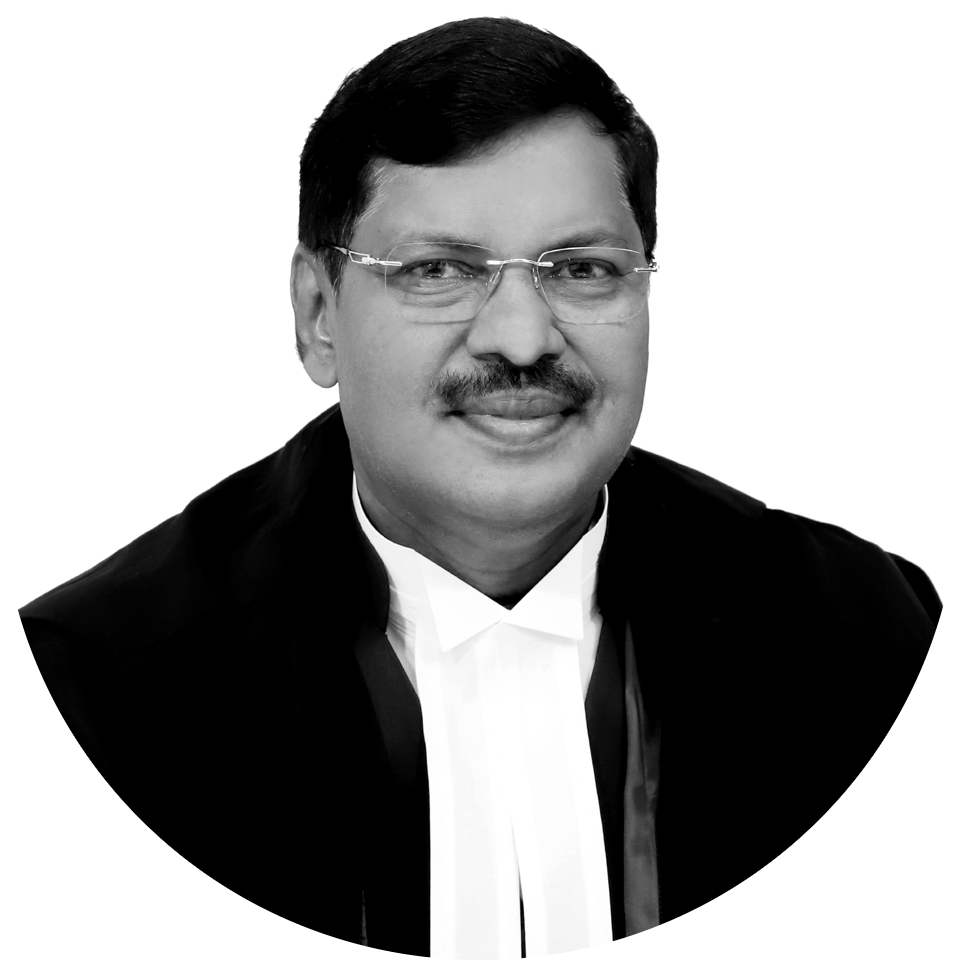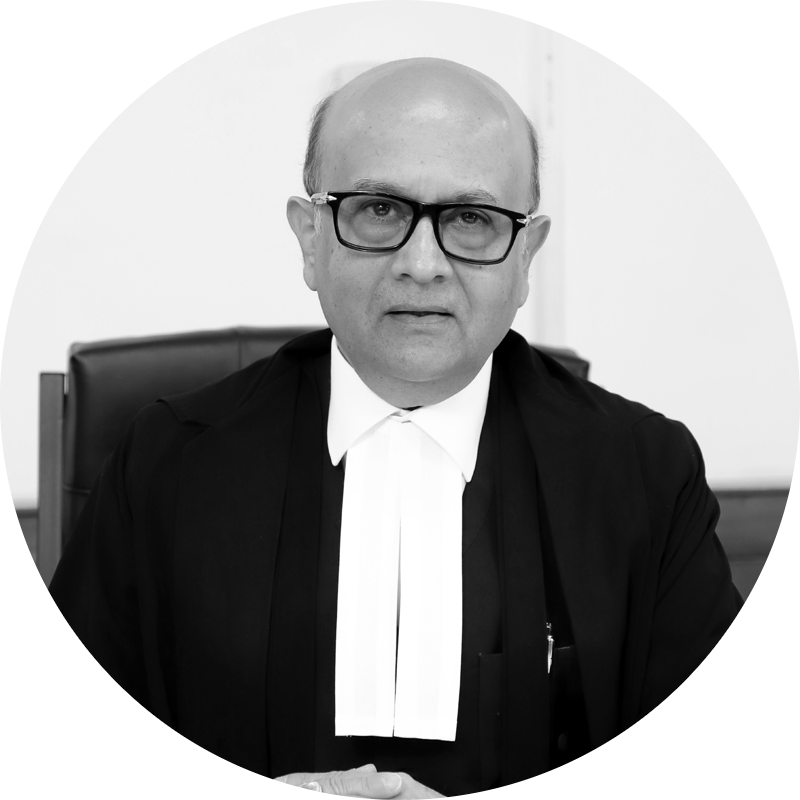Constitutionality of the Electoral Bond Scheme
Association for Democratic Reforms v Union of India
Citation: 2024 INSC 113
The Supreme Court held that the Electoral Bond Scheme was unconstitutional for violating the right to information of voters.
Decided
Parties
Petitioner: Association for Democratic Reforms; Common Cause; Communist Party of India (Marxist)
Lawyers: Advocate Prashant Bhushan; Senior Advocate Kapiil Sibal; Advocate Shadan Farasat; Advocate Nizam Pasha; Senior Advocate Vijay Hansaria
Respondent : Union of India; Election Commission
Lawyers: Attorney General R. Venkataramani; Solicitor General Tushar Mehta; Advocate Amit Mishra; Advocate Kanu Agarwal
Case Details
Case Number: Writ Petition (Civil) No.880/2017
Next Hearing: November 1, 2023
Last Updated: March 21, 2024
Key Issues
Is the electoral bond scheme constitutional?
Does the electoral bond scheme violate the voters’ right to information?
Can the Scheme allow anonymity with the view to protect donors’ right to privacy?
Does the electoral bond scheme threaten the democratic process, and free and fair elections?
Case Description
Former Union Finance Minister Arun Jaitley, when presenting the 2017-18 Union Budget, stated that after 70 years of Independence, “the country has not been able to evolve a transparent method of funding political parties which is vital to the system of free and fair elections.” He proposed the Electoral Bonds Scheme, which was designed to “cleanse the system” of political funding.
An electoral bond is like a promissory note. It is a bearer instrument payable to the bearer on demand. Unlike a promissory note, which contains the details of the payer and payee, an electoral bond has no information on the parties in the transaction at all, providing complete anonymity and confidentiality to the parties.
The legal framework to introduce the Electoral Bond Scheme
On 14 May 2016, the Finance Act, 2016 came into force. It amended Section 2(1)(j)(vi) of the Foreign Contribution Regulation Act, 2010 (FCRA), which defines “foreign source”, to allow foreign companies who have a majority share in Indian companies to donate to political parties. Previously, foreign companies were prohibited from donating to political parties under the FCRA and the Foreign Exchange Management Act, 1999.
On 31 March 2017, the Finance Act, 2017 amended the Representation of the People Act, 1951 (RoPA), the Reserve Bank of India Act, 1934, the Income Tax Act, 1961, and the Companies Act, 2013.
Section 11 of the Finance Act, 2017 amended Section 13A of the Income Tax Act exempting political parties from keeping a detailed record of contributions received through electoral bonds.
Section 135 amended Section 31 of the RBI Act. This permitted the Union government to “authorise any scheduled bank to issue electoral bond[s].”
Section 137 introduced a proviso to Section 29C of RoPA, exempting political parties from publishing contributions received through electoral bonds in “Contribution Reports.” These reports disclose contributions received by parties “in excess of twenty thousand rupees” from companies and individuals.
Section 154 amended Section 182 of the Companies Act, 2013 which removed the upper limit on how much a company could donate to a political party. Previously companies could only donate up to 7.5 percent of three years of the company’s net profits.
Challenges to the Amendments
Shortly after the amendments were introduced, in September 2017 and January 2018, two Non-Governmental Organisations—Association for Democratic Reforms (ADR) and Common Cause— and the Communist Party of India (Marxist) filed petitions in the Supreme Court challenging the amendments. At the outset, the petitions argued that the Finance Acts were wrongfully passed as money bills to prevent higher scrutiny by the Rajya Sabha. This challenge is tagged with the larger challenge to the use of money bills under Article 110.
Petitioners also argued that the scheme allowed “non-transparency in political funding” and legitimised electoral corruption at a “huge scale.”
The Contours of the Electoral Bond Scheme, 2018
On 2 January 2018, the Ministry of Finance issued a notification that introduced the Electoral Bond Scheme, 2018.
Under the 2018 Scheme, certain branches of the State Bank of India (SBI) were authorised to sell electoral bonds. Bonds can be purchased in denominations of ₹ 1,000, ₹10,000, ₹1,00,000, ₹10,00,000, and ₹ 1,00,00,000 from the SBI.
They are to be sold for 10 days in January, April, July, and October each year. The identity of the purchaser remains anonymous to everyone, except the SBI, who must record the buyer’s Know Your Customer (KYC) details.
Political parties which secured more than one percent votes “in the last general election to the House of the People or a Legislative Assembly” are eligible to accept donations through electoral bonds. The political parties must encash the bond within 15 days of receiving it. After this period ends, the funds are deposited to the Prime Minister’s Relief Fund.
Election Commission of India on the Electoral Bonds Scheme
On 25 March 2019, the Election Commission of India (ECI), one of the respondents, filed an affidavit opposing the Electoral Bond Scheme. The affidavit claimed that the scheme is contrary to the goal of transparency in political finance. It also claimed that the ECI had shared a letter to the Union Government on 26 May 2017, warning against the “repercussions/impact on the transparency aspect of political finance/funding.” Further, they submitted that exempting political parties from sharing details regarding contributions would keep information on foreign funding in the dark. The affidavit stated, “unchecked foreign funding of political parties in India, which could lead to Indian policies being influenced by foreign companies.”
On 1 April 2019, the Union government submitted a rejoinder claiming that the EBS was “a pioneer step in bringing electoral reforms, to ensure that the spirit of transparency and accountability in political funding is maintained.” The Union claimed that political parties largely received funds through cash donations, leading to an “unregulated flow of black money.” The Union assured that these issues would no longer hamper political funding because there is only one authorised bank—the State Bank of India—that can issue such bonds. Further, providing KYC details ensure accountability.
The challenge in the Supreme Court
On 12 April 2019, a bench led by Chief Justice Ranjan Gogoi, with Justices Deepak Gupta, and Sanjiv Khanna directed all political parties to submit details of donations, donors, and bank account numbers in a sealed cover to the ECI. The Bench refrained from imposing a stay on the implementation of the scheme stating that “such weighty issues would require an in-depth hearing.”
Following this Order, the petitioners approached the Court on multiple occasions. An application for an urgent hearing was filed in November 2019, then again in October 2020 before the Bihar elections.
In early 2021, ADR approached the Court seeking a stay on the scheme, before the commencement of a fresh round of bond sales. This application was substantially considered by a Bench led by Chief Justice S.A. Bobde, with Justices A.S. Bopanna, and V. Ramasubramanian. On 26 March 2021, the Bench denied any stay on the application of the scheme. They held that the “apprehension that foreign corporate houses may buy the bonds and attempt to influence the electoral process in the country, is…misconceived.” The Bench also sternly discouraged the petitioners from approaching the Court, stating that “there cannot be repeated applications seeking the same relief.”
On 16 October 2023, the petitioners approached the Court during mentioning, to hear the case prior to the 2024 General Elections. A Bench led by Chief Justice D.Y. Chandrachud, with Justices J.B. Pardiwala, and Manoj Misra referred, noting the “importance of the issue” referred the case to a five-judge Constitution Bench.
On 31 October 2023, a five-judge Constitution Bench led by CJI Chandrachud, with Justices Sanjiv Khanna, B.R. Gavai, J.B. Pardiwala, and Manoj Misra heard arguments over three days. Petitioners argued that the electoral bonds scheme increased corporate funding, black money circulation, and corruption. They argued that voters have a right to information about political parties’ source of funding, as it informs the policies and views of that party. The Union contended that the scheme was designed to guarantee confidentiality and the right to privacy of the donors, who were otherwise exposed to retribution from political parties that they didn’t fund.
On 2 November 2023, the Constitution Bench reserved judgement.
On 15 February 2024, the Court unanimously struck down the Union’s 2018 Electoral Bonds (EB) Scheme. The Bench held that the Scheme violated the voters’ right to information enshrined in Article 19(1)(a) of the Constitution. The Court also directed that the sale of electoral bonds be stopped with immediate effect. SBI was directed to submit details of the Electoral Bonds purchased from 12 April 2019 till date, to the ECI. This will include details of the purchaser as well as the political parties that the bonds were given to. Further, the Court ordered the ECI to publish the information shared by SBI on its official website within one week from the receipt of the information (by 13 March 2024).





